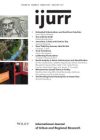Urban planning is usually portrayed as a benign and progressive societal force. This interpretation is critically examined through an evaluation of Israel’s development town project. According to the ‘best’ planning concepts available during the 1950s, Israel built 28 new towns, mainly on the country’s peripheral ‘frontiers’. New immigrants, chiefly low‐income Mizrahi Jews, were housed in the towns, which provided a cornerstone of Israel’s national project of ‘Judaising’ the country. The evidence shows that the planning of the towns has had many regressive consequences: it reinforced and reproduced patterns of deprivation and inequality through the creation of segregated and low‐status Mizrahi ethnic spaces. In the longer term, this spawned continuing grievances and protest, fluctuating political orientation and the emergence of a low‐status Mizrahi ethno‐class. The case in hand casts doubt over the notion of planning solely as a progressive force, and highlights its potential to act as an instrument of control and domination in the hands of societal elites. In Israel, promotion of the ‘national imperative’ of settling the frontiers, the advent of ‘modern urban planning’, and later ‘corrective’ policies to close the centre‐periphery gap, all worked to obscure the regressive stratifying processes caused by the development town project.
Details
Written by:
Oren Yiftachel
Digital Object Identifier (DOI)
10.1111/1468-2427.00255
About DOI
Read full article as PDF
Read full article as HTML
See the references for this article
